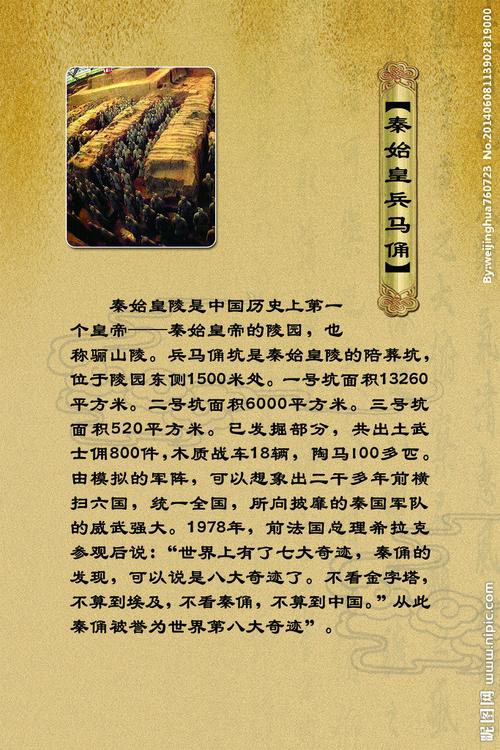
Did the Terracotta Army Demonstrate the Power of the Emperor?
The Terracotta Army, a vast collection of life-sized terracotta sculptures depicting the armies of Qin Shi Huang, the first Emperor of China, is one of the most iconic and impressive archaeological discoveries of all time. Discovered in 1974 by farmers digging a well near Xi'an, China, the army has captured the imagination of people around the world and provided invaluable insights into the military practices, artistry, and beliefs of ancient China. However, beyond its aesthetic and historical significance, the Terracotta Army raises a compelling question: Does it demonstrate the power of the emperor?
Death as a New Stage of Life
To understand the Terracotta Army's purpose, it's essential to consider the ancient Chinese perspective on death. In ancient China, death was seen not as the complete end to an individual but rather, a new stage in life. This belief in an afterlife, particularly for those in positions of power like emperors, heavily influenced burial practices. Tombs weren't just resting places; they were seen as elaborate palaces for the deceased to continue their rule in the afterlife.
The Terracotta Army, in this context, takes on a profound meaning. It wasn't merely an army meant to stand guard in a silent vigil above the emperor's tomb. It was believed to be a real army, imbued with spiritual power, intended to serve the emperor in the next life, just as they had in his earthly one.
The Army as a Display of Power
The sheer scale of the Terracotta Army is a testament to the emperor's power. Thousands of meticulously crafted figures, each with unique features and weaponry, stand in battle formation, ready to defend their emperor for eternity. This display of military might would have been a potent symbol of the emperor's authority, both during his reign and beyond.
The construction of the Terracotta Army required immense resources—labor, materials, and artistry. The mobilization of such resources for a project of this magnitude highlights the emperor's control over his vast empire. The army stands as a testament to the organizational skills and manpower that the emperor could command.
The Emperor's Power Extended into the Afterlife
The Terracotta Army's purpose extends beyond a mere display of military might. It served a deeper, more symbolic function: to extend the emperor's power into the afterlife. The army, according to ancient Chinese beliefs, would protect the emperor from his enemies in the next life and allow him to continue his rule unchallenged.
This belief is reinforced by the army's location. The soldiers stand guard over the emperor's tomb, a sprawling complex designed to be a microcosm of his earthly empire. By surrounding himself with his loyal army even in death, the emperor aimed to ensure his continued dominance in the afterlife.
Conclusion
The Terracotta Army, in its silent grandeur, speaks volumes about the power of Emperor Qin Shi Huang. It's a testament to his military might, his control over resources, and his ambition that extended even beyond the realm of the living. The army served not only as a display of power in this life but also as a vehicle to perpetuate that power into the afterlife, making it a powerful symbol of the emperor's authority and his belief in his own enduring legacy.
Q&A
Q: What is the significance of the unique features of each terracotta soldier?
A: The unique features of each soldier, from their facial expressions to their hairstyles and armor, reflect the meticulous attention to detail paid during their creation. It's believed that these individualistic features were not merely artistic choices but were meant to imbue each soldier with a unique spirit, making the army even more formidable.
Q: What can we learn about ancient Chinese society from the Terracotta Army?
A: The Terracotta Army provides a wealth of information about ancient Chinese society, from their military organization and weaponry to their artistry and beliefs about the afterlife. The army's construction also sheds light on the social structure and labor practices of the time.
Q: How does the Terracotta Army compare to other ancient burial practices around the world?
A: While many cultures have elaborate burial practices for their rulers, the Terracotta Army stands out for its sheer scale and the life-sized, individualized nature of the figures. It provides a unique glimpse into the ancient Chinese belief system and their view of the afterlife, particularly for those in positions of power.